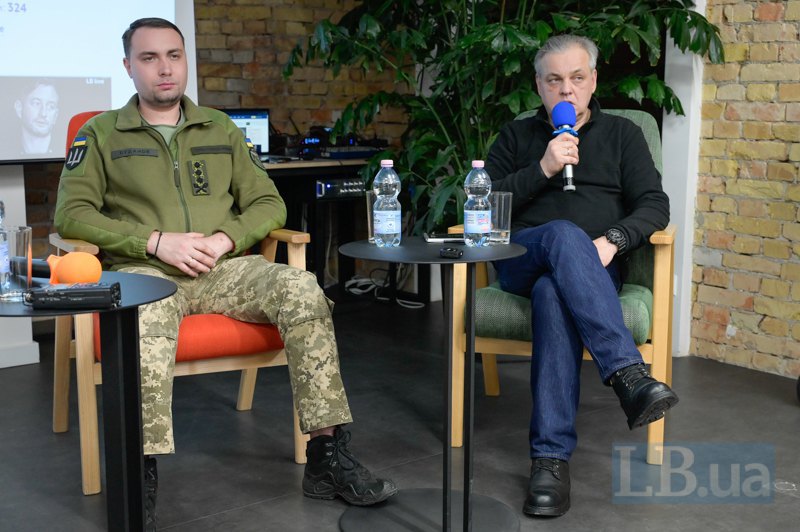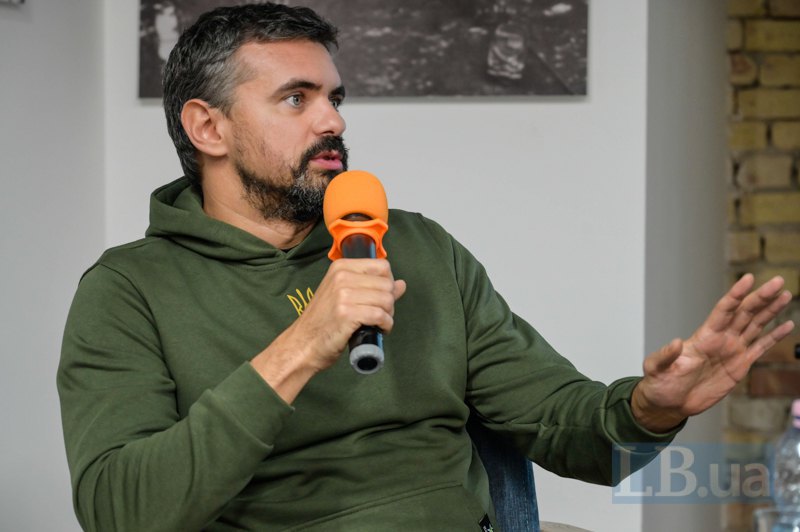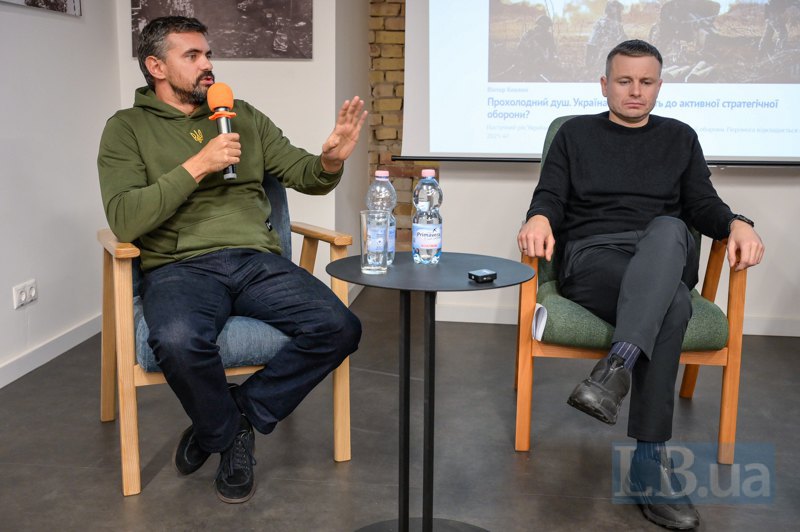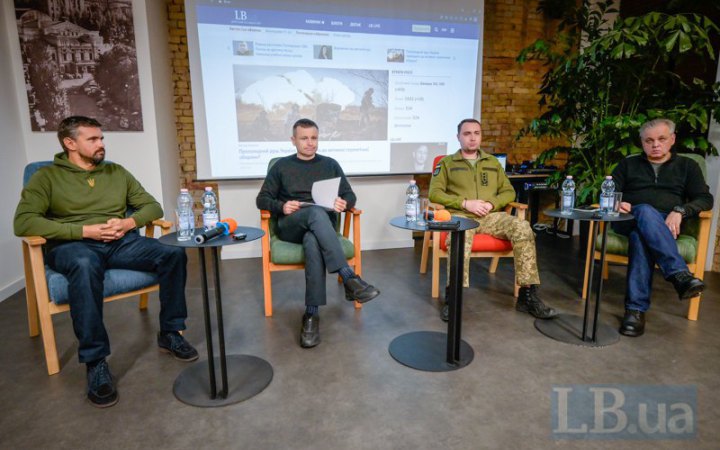According to Finance Minister Serhiy Marchenko, the economy is already on a war footing, and this is how 2024 will differ from 2023.
"We are no longer restoring but building our own military capabilities. We have the funds to formulate a request for UAV systems, to develop other defence industries. I believe this is the trend that will define 2024. It already exists in 2023, it's just that in 2024, additional resources will be allocated to it," Marchenko says.
However, in his opinion, society is not yet ready for a full-scale transition to a military mode.
"Speaking as the minister of finance, a military footing is not only about the defence industry, but also about the public's understanding that we are at war. Unfortunately, we are still living in a rather specific reality, when everything is fine, we have macroeconomic and exchange rate stability. But this reality will need to be corrected if we want to switch to a war footing. This is a restriction on public consumption. We need to reduce it by several times, because we consume mainly imported goods and services, which determines our economic potential," the minister said.
"Is society ready for this? I think it is not ready yet. But this is the reality that can potentially exist. It could be other tax regimes, other spending regimes. We have to prepare for this and, thinking about 2025, lay down the relevant scenarios," Marchenko said.
Serhiy Rakhmanin, a member of the parliamentary committee on national security, defence and intelligence, agrees with the minister of finance's opinion. However, he notes that the pace is too slow.
"If we are talking about the transition to a military mode, this transition is already underway. And it began, in fact, slowly, but in February 2022. And in this sense, I agree with Mr Marchenko, 2024 will be significantly different from 2023. The prioritisation and requirements for industry will be somewhat different, because it is obvious that the amount of financial and military-technical assistance will be smaller," Rakhmanin said.
He adds that the transition to a military-style economy in the sense that was laid down during World War Two - working three shifts at a factory 24/7; a company that used to produce cans for canned food starts making mines - is impossible in modern Ukraine. Our defence industry does not have the capacity for this.
"Unfortunately, since 1991, when we embarked on the so-called conversion course, we have been losing production, technology, skilled personnel, experience, and traditions. And now, even if you force everyone to work 10 shifts, it's like bringing together nine pregnant women, and the baby still won't be born in a month," the defence committee member said. We lack specialists, critical materials, equipment, technology, etc., he adds.

Nevertheless, against the backdrop of declining international assistance, the government (which is primarily responsible under martial law), in coordination with the military, should identify priority areas without which the sector and the Defence Forces cannot operate, Rakhmanin said.
"There are certain things that need to be done immediately, yesterday. For example, the production of gunpowder. We have none at all, and we need them. The situation with explosives is generally bad: we don't have our own TNT, hexogen, nitrocellulose production, and many other things. Why not? There are a million objective reasons. Is this a reason not to do it? No, it is not. Therefore, certain things will have to be abandoned, and certain things will have to be concentrated on," the MP said.
Not only various financial instruments should be used, but also organisational and technical ones, he adds.
"For example, if a production facility critical to the defence system requires skilled personnel, they should be engaged. Perhaps even with the help of mobilisation tools. The logic is that, for example, a skilled miller, turner, mechanic or technologist will work as a machine gunner. This is also an important function, but he will probably be of much more use to the state, its security and defence, performing his professional functions at a critical enterprise. In general, there is a lot to talk about here, but it is clear that a lot of things need to be rebuilt structurally, financially and organisationally," Rakhmanin concludes.
Military intelligence chief Kyrylo Budanov supports Serhiy Rakhmanin's views and emphasises that Ukraine cannot do without modernisation and increased domestic production.
"The amount of weapons we were previously provided with, combined with those produced in Ukraine, does not cover the current problems at all. There is no growth. This must be clearly understood. Everything is going downhill. How long can this go on? It's a rhetorical question," he says.
At the same time, he notes that our defence industry cannot afford to produce everything the Defence Forces need, so it is necessary to identify critical priorities. In his opinion, these are ammunition and artillery barrels.

"The biggest problem on the frontline right now is ammunition and the number of artillery barrels of 122 mm and above. This is the main problem. There is an insufficient number of artillery systems and a lack of normal ammunition for them. So this is the first issue to be addressed. Everything else should be secondary," says Budanov.
Regarding the transition of the economy to a war footing, he notes that this stage is notional and we are already at it.
"But we must admit that the full mobilisation of society to defend their state has not taken place. This is a fact. Maybe it's good that it didn't happen. Because if, like in the old days, teenagers are hired to polish shells at factories, we will have a slightly different conversation," Budanov concluded.
Businessman and chairman of the supervisory board of EFI Group Ihor Liski supported the remark about the insufficient mobilisation of society. In his opinion, this is because society was pacified by talk of a quick victory.
"They even held a bunch of conferences in London, in Lugano, saying that we are going to be showered with money, hundreds of billions of dollars... On the one hand, positivity plays the right role, but sometimes it is counterproductive," says Liski.

Regarding the transition of the economy to a war footing, the businessman called for a shift away from the Soviet understanding of this term.
"Mr Serhiy (Rakhmanin - Ed.) correctly recalled the association, when girls and young men work in three shifts at military factories. But we don't even have such factories. I am against returning to this 'gulag'. I believe that the Soviet Union and the military industry were one big gulag. We are told that we all won (World War Two - Ed.) because there was a big gulag, but without the American lend-lease, the Soviet Union would have lost that war for sure. That's why I'm in favour of getting rid of the Soviet mentality and redefining mobilisation in Ukraine," says Liski.
In his opinion, we need an entrepreneurial or smart approach. There is no chance of defeating Russia in the production of defence industry goods using Soviet approaches - mobilisation through state-owned enterprises, with 10 times fewer resources, people and finances. "We can only win by being efficient," the businessman adds.
"I agree that it is possible to mobilise a designer, a turner or an engineer, but these are point stories to load the small number of factories that have survived. There is another resource, a huge resource in the country that is not being used.
I know from my own experience. I tried to build a cartridge factory at least twice before the war. I tossed around this idea for six months. There were Americans, $100 million, equipment, two lines - 5.45, 7.62, everything. They needed a contract for at least three years.
What did the government say? First, build it, get it certified, win a tender, and maybe in a year (get in touch - Ed.), because we are in a budget year. Of course, there are changes now. But how much have we lost?" the businessman says.
According to him, Ukrainian entrepreneurs are often unable to realise their potential because they do not know what the state needs.
"Of course, there is some secrecy. But today we are producing, investing and financing in a guerrilla way. Of course, the procurement story has moved a little bit, but we will not go to war (on a war footing - Ed.)," says Liski.
"Is it possible for a business to make money from the war and what percentage should it be?" he was asked from the audience. He suggested one should calculate how much Rheinmetall earns from the production of ammunition for Ukraine.
"Do you know how much Rheinmetall supplies to us and how much profit it makes? 400-500%. If you say that our partners can make money, but Ukrainians who are willing to invest in this story cannot, then this is the wrong approach. I believe that we will lose much more if we do not create the conditions for the production of certain types of ammunition or weapons. Of course, we won't have enough, but we can do no worse, and sometimes better, and at a much lower cost," the businessman said.

In addition, what else can a business do during the transition to a war footing, except produce defence products?
"Last year, we exported $60 million worth of value-added products. One medium-sized company. Just because we haven't lost exports, we can potentially bring 15,000 shells. Therefore, we need to support exports and reduce imports. And we need to involve the whole society, the whole country. This should be a government policy," the businessman concludes.









